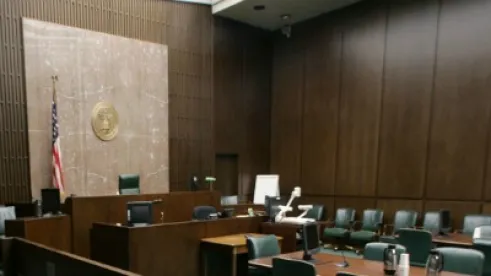The US Court of Appeals for the Federal Circuit determined that it does not have appellate jurisdiction to review noncompulsory patent counterclaims in a case otherwise unrelated to the originally asserted patents. Teradata Corp. v. SAP SE, Case No. 22-1286 (Fed. Cir. Aug. 1, 2023) (nonprecedential) (Lourie, Taranto, Hughes, JJ.)
Teradata makes and sells data warehouse systems and services. SAP develops and sells software. The two companies began collaborating while SAP was simultaneously developing its own database (HANA) and component software. SAP eventually informed Teradata that it would stop selling certain Teradata products. Teradata sued SAP, alleging misappropriation of trade secrets on the theory that SAP used Teradata’s proprietary information to create HANA. Teradata also alleged various antitrust violations, arguing that SAP “illegally tied” HANA and HANA’s supporting software. In response, SAP filed counterclaims against Teradata for allegedly infringing SAP patents related to database organization and optimization. On Teradata’s motion, the district court agreed to sever one of the four patent infringement claims but allowed the others to proceed. The district court reasoned that Teradata’s claims and SAP’s counterclaims all arose from “the same transaction or occurrence,” namely SAP’s development of HANA.
The district court granted summary judgment to SAP on Teradata’s antitrust and technical trade secret claims and stayed proceedings on Teradata’s business trade secret claim and to Teradata on SAP’s patent counterclaims. Teradata appealed to the Federal Circuit.
SAP moved to transfer the appeal to the Ninth Circuit. The Federal Circuit denied the motion but instructed the parties to address the jurisdictional issue in the merits brief. 28 U.S.C. § 1295(a)(1) grants the Federal Circuit exclusive appellate jurisdiction over final decisions in which a party claims or asserts a compulsory counterclaim related to patents. As it relates to this case, the issue was whether SAP’s patent infringement counterclaims were “compulsory,” meaning SAP would be unable to later sue on these patent infringement allegations “if it did not press them in this action.”
The Federal Circuit began by looking at Federal Rules of Civil Procedure 13(a), which states that a counterclaim is “compulsory” if it arises from the same transaction or occurrence as a plaintiff’s claim. The Court explained that it uses three tests to determine whether the transaction or occurrence is sufficiently related between the claim and counterclaim:
- Whether the legal and factual issues are substantially the same
- Whether the evidence will be substantially the same
- Whether there is “a logical relationship between the claim and the counterclaim.”
Taken together, these tests essentially ask if there is substantial overlap between what the plaintiff and the defendant must establish to succeed on the claim and counterclaim, respectively.
The Federal Circuit found that the first two tests clearly weighed against SAP’s counterclaim being compulsory. While an understanding of the accused products and alleged trade secrets would be necessary for both the claim and the counterclaim, “same-field overlap” is not enough to make the issues or necessary evidence “substantially the same.”
As to the third test, the Federal Circuit found an insufficient “logical relationship” between Teradata’s trade secret and antitrust claims and SAP’s patent infringement counterclaims. The Court noted that one key consideration was that SAP’s products were the subject of the trade secret misappropriation and antitrust claims, but Teradata’s products were the subject of the patent infringement counterclaims, mitigating against any showing of a strong logical relationship. The Court also noted that SAP’s counterclaims did not relate to the validity of Teradata’s trade secrets or SAP’s monopoly but to the separate issue of Teradata’s alleged patent infringement. Thus, the Court concluded that the two sides’ claims did not “arise out of the same transaction or occurrence” and therefore SAP’s counterclaims were not compulsory.
The Federal Circuit concluded that since SAP’s counterclaims were noncompulsory, they did not confer appellate jurisdiction. However, the Federal Circuit noted that if the Ninth Circuit were to sever SAP’s patent counterclaims under Fed. R. Civ. P. 21, a judgment on SAP’s independent patent claims would be appealable to the Federal Circuit. However, as the case was presented, the Federal Circuit determined that it did not have jurisdiction over the noncompulsory counterclaims or the non-patent claims, and therefore transferred the appeal to the Ninth Circuit.
Practical Note: For defendants deciding whether to assert noncompulsory patent counterclaims or institute a separate action for infringement, the path to appeal should be a necessary consideration.




 />i
/>i
